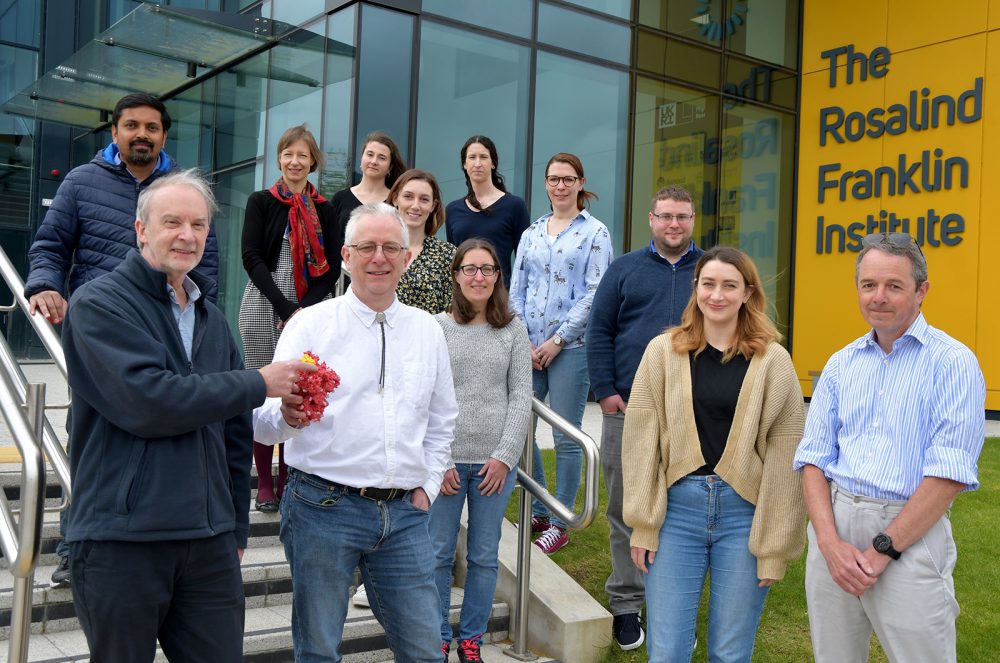Team Nanobodies Win Royal Society of Chemistry Prize
Team Nanobodies, led by The Rosalind Franklin Institute, have been named the winner of the Royal Society of Chemistry’s Chemistry Biology Interface Division Horizon Prize, celebrating the most exciting chemical science taking place today.
The highly collaborative team was led by Profs Ray Owens and James Naismith at The Rosalind Franklin Institute, with team members being based at the University of Oxford, Diamond Light Source, UK Health Security Agency, and the University of Liverpool.
They were awarded the prize for the development of tools for the fight against Covid-19. Their research has shown that nanobodies – a smaller, simple form of antibody generated by llamas and camels – can effectively target the SARS-CoV-2 virus that causes Covid-19. They found that short chains of the molecules, which can be produced in large quantities in the laboratory, significantly reduced signs of the Covid-19 disease when administered to infected animal models.
The Horizon Prizes celebrate the most exciting, contemporary chemical science at the cutting edge of research and innovation. These prizes are for teams or collaborations who are opening up new directions and possibilities in their field, through ground-breaking scientific developments.
After receiving the prize, Professor James Naismith, Director of the Rosalind Franklin Institute, said: “This project was an amazing example of teamwork, everyone had their own role to play and they were able to slot into the team and drive this work forward. The biggest challenge of this project was to keep up morale, a lot of this work was done during the first lockdown when no one really knew what was going to happen. The problem felt urgent and the team wanted to move as fast as possible to make an impact but it wasn’t always that easy.”

The collaboration took a skills-based approach as lockdown meant lab work was built around lone and shift working. Safety was paramount, so they used a strict pipeline approach with each researcher focusing on their key skills. This minimised the movement of researchers through physical areas (only the samples moved) and they worked in a shift pattern to both minimise crossover between researchers and maximise productivity. “This was pretty cool because it meant we all worked only to our strengths and dropped the aspects we are less good at,” explained Dr Halina Mikolajek, Research Scientist who is also responsible for the Crystallisation Facility at Harwell, based in the Research Complex adjacent to Diamond.
She added; “When I look back, this kind of work is what got me into STEM. It reminded me of how exciting the first year of my PhD was and I still get excited to find crystals and see molecules the human eye cannot see.”
Dr Helen Pain, Chief Executive of the Royal Society of Chemistry, said:
“Some of the most incredible work in chemical science is carried out by teams and collaborations who use their diversity of thought, experience and skills to deliver astonishing results. These synergies are often at the very forefront of expanding our understanding of the world around us, and why our judges have such a difficult job selecting winners for our Horizon Prizes.
“Although we are in the midst of negotiating a particularly turbulent and challenging era, it is important to celebrate successes and advances in understanding as genuine opportunities to improve our lives. The work of Team Nanobodies is a fantastic example of why we celebrate great science; and we’re very proud to recognise their contribution today.”
For more information about the RSC’s prizes portfolio, visit rsc.li/prizes.
